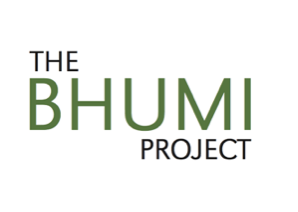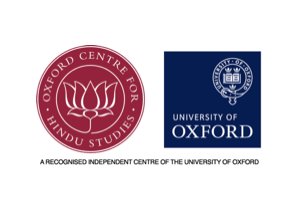Six years have passed since the first Hindu Declaration on Climate Change was adopted by spiritual leaders at the Parliament of the World’s Religions, in Melbourne, Australia. “Rapacious exploitation of the planet [has] caught up with us,” it warns. “A radical change in our relationship with nature is no longer an option. It is a matter of survival. We cannot destroy nature without destroying ourselves.”
Unfortunately, since then little decisive action has been taken. Global temperature increase, sea level rise, and ocean acidification have all worsened. Ice in the Arctic and Antarctic continues its rapid melt. Yet we are still without a comprehensive global treaty on climate change. Climate change is a stark symptom of the deeper problem of humanity living out of balance with what Bhūmi Devi, our shared planet, can renewably provide.
Today, with the 2015 Paris Climate Conference nearly upon us, members of the global Hindu community again urge strong, meaningful action be taken, at both the international and national level, to slow and prevent climate change. Such action must be scientifically credible and historically fair, based on deep reductions in greenhouse gas emissions through a transition away from polluting technologies, especially away from fossil fuels. A transition towards using 100-percent clean energy is desperately needed, as rapidly as is possible in every nation. Doing so provides the only basis for sustainable, continued human development. It is the best hope for the billions of people without electricity or clean cooking facilities to live better lives and reduce poverty.
We cannot rely on governments alone to act, however. Each one of us has a part to play in reducing climate pollution, by changing our inner and outer behaviour. As Mahatma Gandhi posited, “If we could change ourselves, the tendencies in the world would also change. As a man changes his own nature, so does the attitude of the world change towards him. We need not wait to see what others do.”
The Mahābhārata (109.10) tells us, “Dharma exists for the welfare of all beings. Hence, that by which the welfare of all living beings is sustained, that for sure is dharma.”
Today we call on all Hindus to expand our conception of dharma. We must consider the effects of our actions not just on ourselves and those humans around us, but also on all beings. We have a dharmic duty for each of us to do our part in ensuring that we have a functioning, abundant, and bountiful planet.
In the Assisi Declarations on Nature (1986), Dr. Karan Singh writes, “Hinduism believes in the all encompassing sovereignty of the divine…[humanity] is not seen as something apart from the Earth and its multitudinous life forms…[Man] is there integrally linked to the whole of creation.”
The Śrīmad Bhāgavatam (2.2.41) states, “Ether, air, fire, water, earth, planets, all creatures, directions, trees and plants, rivers and seas, they are all organs of God’s body. Remembering this a devotee respects all species.” Knowing this, Hindus strive for ahimsā, to minimise the harm we cause through our actions in our ordinary, day-to-day lives. As Hindus we revere all life, human, non-human, plant, and animal. Our rivers are all goddesses; our mountains are gods. The landscape as a whole is seen as being full of divinity. The planets and stars are physical objects, but they are also celestial beings, they and the space between them full of divinity. When we embody this, we move beyond just caring for our fellow beings as stewards of a divine creation. We become servants of the Divine, all our actions, including those in protection of the world around us and all the beings therein, becoming acts of worship.
We must base our response to climate change on a number of central principles, expanding on the truism that the Divine is all and all life is to be treated with reverence and respect: Internalising vasudhaiva kutumbakam (the family of Mother Earth), promoting sarva bhuta hita (the welfare of all beings), and acting with an understanding of karma and the cycle of birth, death, and rebirth.
Climate change creates pain, suffering, and violence. Unless we change how we use energy, how we use the land, how we grow our crops, how we treat other animals, and how we use natural resources, we will only further this pain, suffering, and violence. On a personal basis, we can reduce this suffering by beginning to transform our habits, simplifying our lives and material desires, and not taking more than our reasonable share of resources. Adopting a plant-based diet is one of the single most powerful acts that a person can take in reducing environmental impact. In doing all of this, we help maintain the ecological and cosmic order, an order that allows life and existence to flourish.
More than 5000 years ago the scriptural foundation of Hinduism, Sanātana Dharma, was laid down in the Vedas, the start of millennia of continuous spiritual exploration. Today, Sanātana Dharma consists of myriad lineages and teachers, each with a different perspective on humanity’s relationship with the ultimate reality. Hinduism extols this pluralistic ethos through the Ṛg Veda verse “Ekaṁ sad viprā bahudhā vadanti. Truth is one, the wise call it by many names.” There are many paths of yoga one can use to achieve Realisation, whether it be karma (action), bhakti (devotion), jñāna (knowledge), or rājā yoga, now followed throughout the world. There is a wide spectrum of belief and practice which enables Hinduism to be beautifully diverse and welcoming.
This diversity, though, shouldn’t distract from the underlying unity of belief. Three words in Sanskrit, from the Īśopaniṣad, broadly characterise the Hindu outlook: “Īśāvāsyam idam sarvam. This entire universe is to be looked upon as the energy of the Lord.”
Today, each of us must ask ourselves, “How can I be of service? How can my service become an act of worship to honour and protect Bhūmi Devi?”
Through this combination of meaningful action, personal transformation, and service done selflessly and as an act of worship we will be able to make the sort of inner and outer transitions that addressing climate change requires. In doing this we are acting in a deeply dharmic way, true to our Hindu ethos, philosophy, and tradition.
Aum, śānti, śānti, śāntiḥ.










































